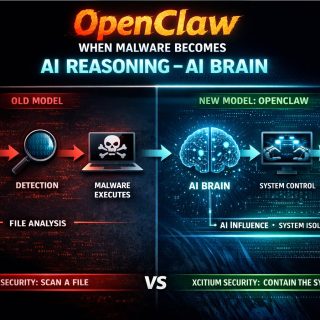
“IT Managers Can’t Keep Doing Cybersecurity Vendors’ Jobs”
“Cybersecurity Vendors Must Step Up or Step Aside, Must Stop Passing the Buck to IT Managers”
The role of IT managers has evolved, but not always for the better. With businesses relying more on technology than ever, IT departments are overburdened with responsibilities, juggling network management, user support, and cybersecurity. Yet, cybersecurity vendors—who should be partners in protection—are often adding to the load rather than alleviating it.
One glaring issue is the expectation for IT managers to make security-critical decisions on brand new, unknown executable files that hit their networks. Vendors provide more tools, more “insights,” and more data for IT managers to analyze, along with more investigations, more analysis, and more tasks, further burdening the already overworked IT managers. Instead of easing their workload, these added layers of responsibility push them into deeper cycles of investigations and decision-making, making it harder for them to focus on their core responsibilities. In essence, we are asking overworked IT professionals to spin their wheels trying to assess threats they should never have to touch in the first place.
Let’s face the reality: breaches and infections occur because something malicious is allowed to execute. If IT managers knew it was malicious, they of course wouldn’t allow it. But the truth is, most IT managers don’t have the time or resources to make that call with precision for every single file that enters their environment. Only if cybersecurity vendors did what they should be doing, by giving trusted verdicts to every single executable file, then it would be much easier for the IT managers to build policies rather than doing the work for the cybersecurity vendors by analyzing these files themselves.
The Responsibility of Cybersecurity Vendors
This is where cybersecurity vendors must step up. Instead of pushing tools that increase workload, vendors should take full responsibility for providing trusted verdicts on every single executable file. The days of relying on IT managers to assess these threats need to end. The future of cybersecurity isn’t about giving IT managers more to think about; it’s about providing them with the answers.
A truly effective cybersecurity vendor should offer IT managers the ultimate gift: time and security. By giving every file a trusted, concrete verdict, vendors free IT professionals from the impossible task of determining whether an unknown file is safe. And only when every single file is either greenlit or blocked will IT managers truly have the security and peace of mind they deserve.
A New Era in Cybersecurity
At its core, cybersecurity is about prevention. Allowing anything unknown to run inside a network is a gamble—one that organizations can’t afford to make. Legacy security products with their “wishy-washy” approach of relying on insights and vague probabilities are no longer acceptable. It’s time for vendors to either step up or shut up.
1) Cybersecurity Vendors Must Take Responsibility for Every File
The responsibility to give a verdict on each and every file must lie with the cybersecurity vendor. IT managers shouldn’t have to bear the burden of determining whether a file is safe or not. Vendors must take full ownership of providing trusted verdicts for every executable file entering a network. This removes the impossible task from IT departments and ensures a more secure environment where the risk of malware and breaches is minimized.
2) Ensuring Security and Business Continuity While Files Are Analyzed
a) Provide Security from Unknown Files First
Vendors must protect customers from unknown executables immediately, without delay, while those files are being analyzed. This means vendors need to implement solutions, like Xcitium’s kernel-level API virtualization, which allows unknown files to be used in user’s computers. This technology ensures that even if the file is malicious, it cannot cause harm because Xcitium’s technology has applied ASR (Attack Surface Reduction) to this unknown file.
b) Maintain Business Continuity
While unknown files are being analyzed, business continuity must be preserved. Users should not have to wait for the analysis to be completed before they can use the file. The controlled environment ensures that employees can continue to use the file without risking security breaches, allowing businesses to function without interruptions or delays.
The future of cybersecurity is clear: vendors must take full responsibility for securing their customers’ networks. No more passing the buck. It’s time to deliver trusted verdicts on 100% of files—and protect businesses from the unknown while doing so.



